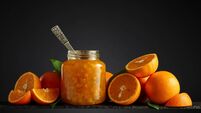Can collagen supplements help to improve our skin and fight signs of ageing?

Hailed as an elixir of youth, collagen has got TikTok influencers enthusing about how it reduces wrinkles and firms up sagging skin. On Instagram, there are more than 13m hashtags linked to posts claiming that collagen drinks, peptides, and powders help with everything from painful muscles to aching joints.
Hailed as an elixir of youth, collagen has got TikTok influencers enthusing about how it reduces wrinkles and firms up sagging skin. On Instagram, there are more than 13m hashtags linked to posts claiming that collagen drinks, peptides, and powders help with everything from painful muscles to aching joints.
Celebrities, including Jennifer Aniston and Kate Hudson, have publicly said that collagen supplements have helped keep their skin looking youthful and smooth. And Bryan Johnson, the tech entrepreneur who is devoting a significant amount of his time and $400m fortune to trying to prolong his life, takes 25g of collagen peptides every day as part of that quest.











